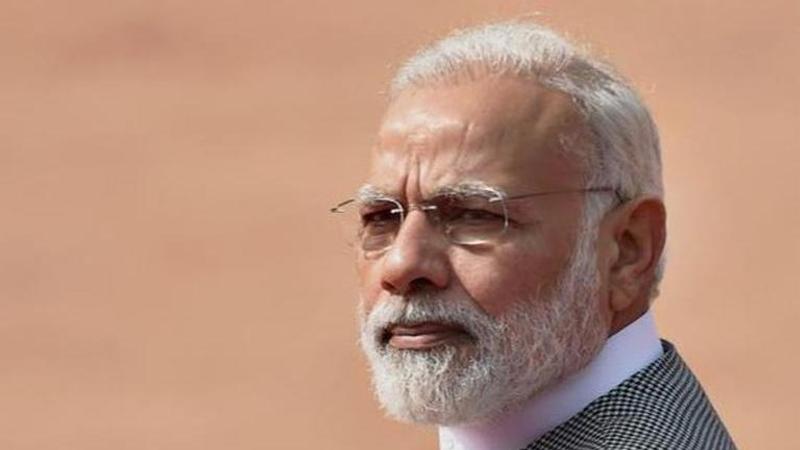Published 23:04 IST, September 8th 2020
India to have 220 GW renewable energy capacity by 2022: PM Modi
Prime Minister Narendra Modi on Tuesday exuded confidence that India will increase its existing clean energy capacity of 134 GW to 220 GW by 2022 and stressed on reducing tariffs further through technological advancements.

Prime Minister Narendra Modi on Tuesday exuded confidence that India will increase its existing clean energy capacity of 134 GW to 220 GW by 2022 and stressed on reducing tariffs further through technological advancements.
The Prime Minister was earlier expected to deliver the inaugural address at the World Solar Technology Summit organised by the International Solar Alliance (ISA), but could not do so due to some other engagements. New and Renewable Energy Minister R K Singh read out Modi's message at the virtual summit.
"We have scaled up our non-fossil fuel based generation to 134 GW, which is about 35 per cent of our total power generation. We are confident of increasing it to 220 GW by 2022," Singh said, reading out the Prime Minister's message.
"Technology holds the key to scale up the use of solar energy. Technological advancements have already brought about a significant reduction in the price of solar power. A further reduction in the cost will provide a major boost to the use and expansion of renewable energy," Modi said in the message.
Modi also mentioned the 'One World, One Sun, One Grid' project which is aimed at facilitating clean energy supplies across nations.
The Prime Minister asserted that ISA is part of this project which can bring transformational benefits for entire humanity.
"India is providing capacity building support to ISA member countries through its ITEC training programme. We have also set up a Project Preparation Facility to develop bankable solar energy projects in ISA member countries with the help of EXIM Bank of India," the Prime Minister said.
He further said in 2018, India had announced about USD 1.4 billion worth of lines of credit (LOCs) for covering 27 solar projects across 15 countries. These projects are in various stages of implementation.
He also stated that the government wants to take solar energy to all villages in the country and replace diesel with this clean source in the farm sector. Modi said five years ago, world leaders had taken a pledge to restrict the rise in global temperature through a gradual reduction in the dependence on fossil fuels.
Underlining India's commitment to lowering carbon footprints, he stressed that the country has the lowest per-capita carbon emissions in the world but has still pressed ahead with deployment of renewable energy at a frenetic pace.
India has enhanced its installed renewable capacity by 2.5 times and solar capacity by more than 13 times. "Globally India now ranks 4th in terms of renewable power,” Modi said.
Speaking earlier at the event, Oil Minister Dharmendra Pradhan said the government is actively encouraging the industry, oil and gas companies in particular, to become participants in this transition to solar energy.
"Our oil and gas companies are also making efforts to deploy solar panels across the value chain of their operations, and current installed solar power capacity is 270 MW.
"Additional 60 MW solar capacity will be added in the coming year. We have taken up the mission of solarising about 50 per cent of fuel stations owned by public sector oil companies in the next five years," he added.
Five public sector undertakings (PSUs) under the Petroleum and Natural Gas Ministry will be joining ISA's Coalition for Sustainable Climate Action (ISA-CSCA) as corporate partners.
Pradhan said Oil and Natural Gas Corporation Limited (ONGC), Indian Oil Corporation Limited (IOCL), Bharat Petroleum Corporation Limited (BPCL), Hindustan Petroleum Corporation Limited (HPCL) and GAIL (India) Limited will be contributing to ISA's Corpus Fund.
The ISA is a treaty-based international inter-governmental organisation. ISA was jointly launched by India and France in the presence of the UN Secretary General during the CoP21 climate change conference.
The Paris Declaration establishes ISA as an alliance dedicated to the promotion of solar energy among its member countries.
The major objectives of the organisation include deployment of 1,000 GW of solar capacity and mobilisation of USD 1,000 billion of investment in solar energy sector by 2030.
As an action-oriented organisation, ISA intends to bring together member countries to aggregate demand and realise economies of scale, resulting in reduction of costs of solar applications, facilitating deployment of existing solar technologies at scale, and promoting collaborative solar R&D and capacity.
As on June 26, 2020, the ISA Framework Agreement has been signed by 86 countries, with 68 having also deposited instruments of ratification. The ISA is headquartered at Gurugram in Haryana, India.
The World Solar Technology Summit (WSTS), organised by ISA and FICCI on Tuesday, brought together key stakeholders -- leading academic scientists, technology developers, researchers and innovators -- to present and discuss the recent highlights of solar technologies.
(Photo Credit: PTI)
Updated 23:04 IST, September 8th 2020




